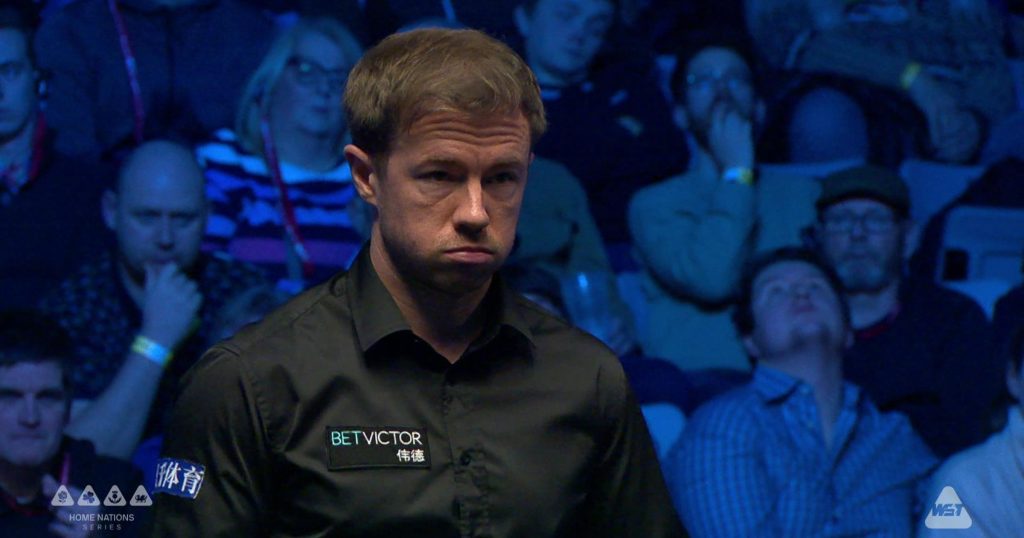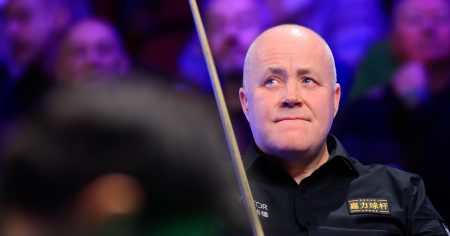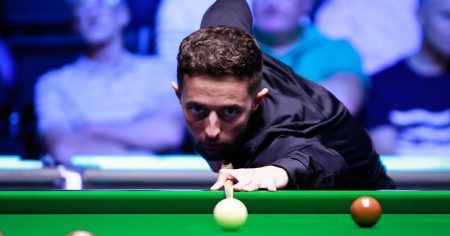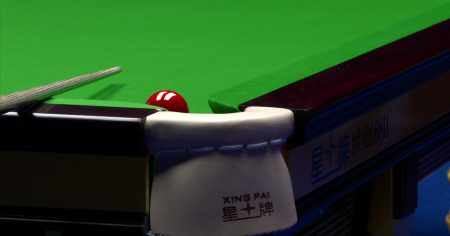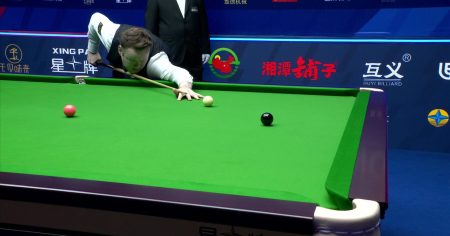Jack Lisowski’s dramatic exit from the Scottish Open against Mark Allen became an instant classic, not for exceptional snooker, but for an unprecedented concession. Trailing 3-1 in the best-of-seven match, Lisowski found himself in a seemingly recoverable position in the fifth frame. With the scores level at 52-52, and the colours still on the table, he inexplicably offered a handshake to Allen, conceding the frame and the match. The stunned silence that followed underscored the rarity of such an occurrence in professional snooker, a sport steeped in tradition and known for its gritty competitiveness. Lisowski’s actions deviated so sharply from established norms that they prompted immediate speculation and debate about the underlying reasons behind the surprising surrender.
The unusual nature of the concession triggered a wave of reactions from fellow players, commentators, and fans alike. Many expressed bewilderment at Lisowski’s decision, questioning his mental state and speculating about potential pressures he might be facing. Some suggested frustration with his own performance during the match might have played a role, while others pointed to a possible miscalculation, believing he might have underestimated his chances of winning the frame and ultimately the match. Regardless of the specific motivations, the consensus was that conceding in such a manner was highly unorthodox and raised concerns about the pressures and challenges professional snooker players face. The incident served as a stark reminder of the mental fortitude required to compete at the highest level and the impact psychological factors can have on performance.
Adding to the intrigue surrounding the concession was the lack of a clear and immediate explanation from Lisowski himself. His silence fueled further speculation and allowed narratives to proliferate, some more sympathetic than others. The absence of a definitive statement from the player left a void that was quickly filled with conjectures, ranging from potential personal issues to a strategic, albeit highly unconventional, attempt to conserve energy for future tournaments. While some defended his right to concede, regardless of the reasoning, others criticized the act as disrespectful to his opponent, the tournament, and the sport itself. The lack of transparency only amplified the public’s curiosity and underscored the need for a better understanding of the pressures faced by professional athletes.
The unexpected concession also prompted a wider discussion about the rules and etiquette of professional snooker. While there are no explicit rules preventing a player from conceding a frame or a match at any point, the unwritten conventions of the sport dictate that such actions are usually reserved for situations where a player is significantly behind and winning is mathematically impossible. Lisowski’s concession, with the scores tied and the frame still very much in play, clearly defied these unspoken rules. The incident raised questions about the need for clearer guidelines regarding concessions, potentially to prevent similar situations from arising in the future and to maintain the integrity and spirit of the game.
Beyond the immediate controversy, the incident shone a light on the mental health challenges prevalent in professional sports. The intense pressure to perform, the constant travel, and the public scrutiny can take a toll on athletes’ mental well-being. While physical fitness is often prioritized, the mental aspect of the game is equally crucial, if not more so. Lisowski’s concession, regardless of the specific reason, served as a reminder of the importance of mental health support for athletes. It highlighted the need for a more open and understanding environment where players feel comfortable seeking help and addressing mental health concerns without fear of stigma or judgment. The incident sparked calls for greater awareness and resources to support athletes’ mental and emotional well-being, recognizing that mental strength is just as vital as physical prowess.
In the aftermath of the incident, Jack Lisowski finally broke his silence, offering an apology for his actions and attributing the concession to a “moment of madness.” He admitted to feeling overwhelmed by pressure and frustration during the match, leading to a lapse in judgment. While his explanation provided some clarity, it also underscored the immense pressure that professional athletes, particularly in individual sports like snooker, face. The incident served as a valuable learning experience, not only for Lisowski himself but for the wider snooker community and the sporting world in general. It highlighted the importance of recognizing and addressing mental health challenges, fostering open communication, and providing adequate support systems for athletes navigating the complexities of professional sports. The episode ultimately sparked a crucial dialogue about the pressures, expectations, and mental health realities faced by professional athletes, emphasizing the need for a more compassionate and understanding approach to supporting their well-being both on and off the field.




